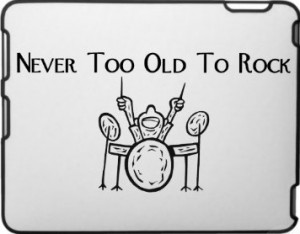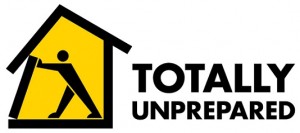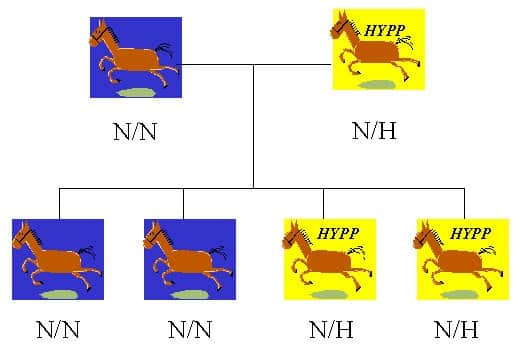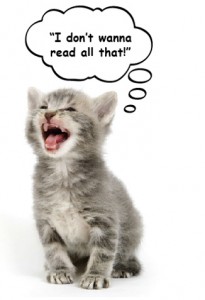 DISCLAIMER: Before we get any farther in this article, I want to make sure that you know something important. The vast majority of horses that have an episode of colic don’t die or have any sort of serious complication. In fact, the vast majority of the horses that have an episode of colic don’t need surgery, and they do just fine. Heck, I figure that something like a third of the horses that colic never get seen by anyone at all: those that happen in the middle of the night probably roll around a bit, the pain passes, and you’ll never know, except for perhaps wondering how he got so dirty. For that matter, colic isn’t even a disease – it’s just means that the horse has a pain in his abdomen. And a lot of those pains go away on their own. So, please, don’t consider colic a death sentence – it’s most often not.
DISCLAIMER: Before we get any farther in this article, I want to make sure that you know something important. The vast majority of horses that have an episode of colic don’t die or have any sort of serious complication. In fact, the vast majority of the horses that have an episode of colic don’t need surgery, and they do just fine. Heck, I figure that something like a third of the horses that colic never get seen by anyone at all: those that happen in the middle of the night probably roll around a bit, the pain passes, and you’ll never know, except for perhaps wondering how he got so dirty. For that matter, colic isn’t even a disease – it’s just means that the horse has a pain in his abdomen. And a lot of those pains go away on their own. So, please, don’t consider colic a death sentence – it’s most often not.
HERE’S WHERE THE ARTICLE STARTS: Pretty much everyone is concerned about their horse having an episode of colic. And I get that. I mean, you love your horse, and colic is generally considered the number 1 medical problem of domesticated horses. It’s likely to be something that you will experience eventually, if (hopefully) not your horse, then the horse of someone that you know.
Even though most horses that have an episode of colic do just fine, unfortunately, some don’t. That’s why it’s important that you try to figure out which ones aren’t doing just fine as fast as you can. Those horses that aren’t doing fine are most likely going to need a surgery to correct some sort of problem with their intestines, and the fact of the matter is that the faster that a horse who needs colic surgery gets it, the more likely it is that the horse is going to make it.
But let’s just say that you (and your horse) have been unlucky enough to find out that your horse has a serious problem, needs to go to the hospital, and probably won’t make it unless he has surgery. You’ll find all sorts of articles that will tell you what to do. But, here’s what you shouldn’t do.
Don’t make an emotional decision to avoid taking your horse to colic surgery. Don’t think with your heart. Use your head.
I had this client one time who, amazed at how well I had just handled the tragedy of her horse staining the stall with a few drops of blood from a nearly imperceptible cut, said, “Wow, you sure do seem calm in emergencies!”
I said, “One of us had better be.”
If you’re faced with an emergency colic situation, why not make that calm person be you? Yes, a serious colic is a bad deal, but you don’t want to avoid colic surgery because you get wrapped up in the situation. You should make a decision on whether your send your horse to colic surgery based on criteria like, “Can I really afford this?” You should make a decision thinking, “If the worst happened, and you still lost your horse, would you be OK with having spent the money?” Remember, the cost of colic surgery can be more than the cost of a new horse. Or, as a colic-surgeon friend once said, “Do you want to own this horse, or a horse?” If you do think that you would spend money for a colic surgery, and money is an issue – and for many horse owners, including me, it often is – maybe you should consider getting some insurance to help defray the cost.
Don’t get yourself in an emotional bind. Emotion is not your friend, when it comes to making a serious decision like colic surgery. Think about the possibility of a serious problem before it happens, and you’ll make the best decision for both of you.
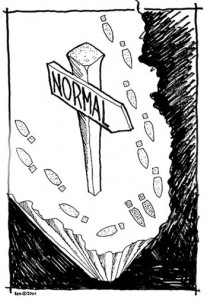 2. “My horse will never be the same.”
2. “My horse will never be the same.”
I have sometimes heard people decline surgery because even though they love their horse, their concerned that he will never be the same after colic surgery. I sometimes point out that he’s guaranteed not to be the same if he doesn’t get colic surgery: as in, not alive. That sometimes seems to help bring some clarity to the situation.
Still, a study published out of North Carolina State University (2013) might help change your thinking, if you’re thinking that colic surgery means the end of your horse’s riding career. In that study, of the horses that had colic surgery that survived to 6 months, 133/195 (68%) were performing their intended use and 85/156 (54%) were at or above preoperative performance. After one year, 145/190 (76%) horses were performing their intended use and 101/153 (66%) were at or above preoperative performance. The authors concluded that, “The overall prognosis for return to use and performance following colic surgery is fair to good.”
A 2011 study from Denmark found the same thing (scientists really like it when studies keep coming up with the same results. It confirms that what they think might be true is actually correct). They found that horses discharged after colic surgery had a high long-term survival rate, resumed or started sporting activities, with most of them at their presurgical performance level. And, almost as good, a large majority of the owners were satisfied, too.
There’s certainly no guarantee that your horse is going to make it all the way back after colic surgery. However, colic surgery is certainly not a guaranteed end of your horse’s career, either. If you’ve made the decision to give him a chance, chances are things will turn out OK.
The oldest horse that I have ever sent to colic surgery was 29 years old. Really. He went to colic surgery, he did just great, and he lived two more years after the colic surgery. And the owners were thrilled. For them, those extra two years were well worth the money spent.
The thing is, their experience wasn’t uncommon. That is, there’s no reason to not do colic surgery just because your horse is old. In 2009, a study done at a Florida surgical center found out that geriatric horses did just about as well as younger horses, once they survived the initial surgery. Of horses that survived surgery and anesthetic recovery, 82% of geriatric horses and 89% of nongeriatric horses were discharged from the hospital alive. Now it’s true that more older horses got put to sleep on the surgery table, but that’s reflective of the problem, not the age of the horse. If older horses make it through surgery, they do just about as well as the youngsters do.
I am not about to suggest that, in addition to the expense of owning a horse, you should also go out and buy a horse trailer. I mean, one good thing about a trailer is that you don’t have to feed it, but still, it’s an extra expense. But if you don’t have a trailer, at least have a pretty good idea about how you’re going to get your horse moved if there’s an emergency.
 It’s hard enough watching your horse rolling around with a pain in his gut, and also keep calm. You don’t need to add the stress of trying to find someone to haul your horse in the middle of the night to that picture. If you don’t have a trailer, put together a list of numbers of friends or commercial haulers that would be willing to come to your horse’s aid in a pinch. You don’t want to deny your horse a life-saving surgery just because you haven’t thought about a ride.
It’s hard enough watching your horse rolling around with a pain in his gut, and also keep calm. You don’t need to add the stress of trying to find someone to haul your horse in the middle of the night to that picture. If you don’t have a trailer, put together a list of numbers of friends or commercial haulers that would be willing to come to your horse’s aid in a pinch. You don’t want to deny your horse a life-saving surgery just because you haven’t thought about a ride.
Chances are, your horse won’t ever need colic surgery. (CLICK HERE if you want to read an article that I wrote about how you know when your horse does need colic surgery.) But the fact is that when a horse has a pain that’s caused by a problem that needs surgical correction, surgery is usually a viable opportunity to fix the problem, and return your horse to a normal, healthy life. Don’t let emotion rule the day – make sure you’re prepared, and let a cool head prevail!



